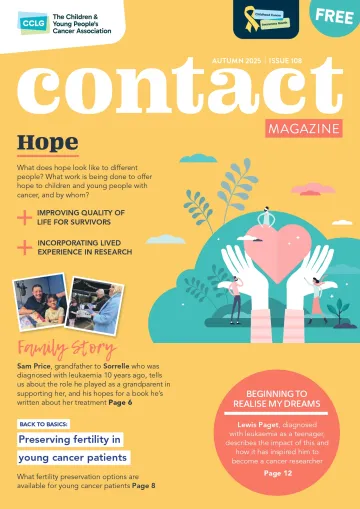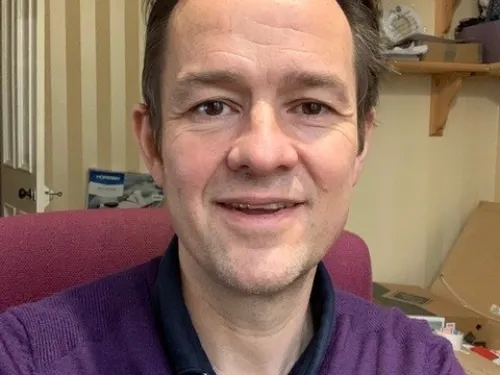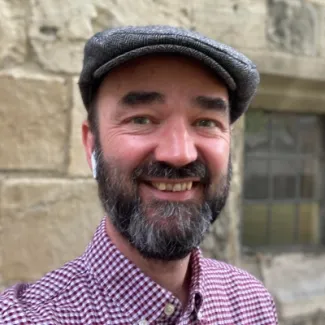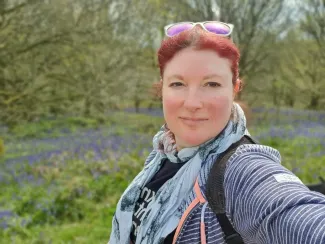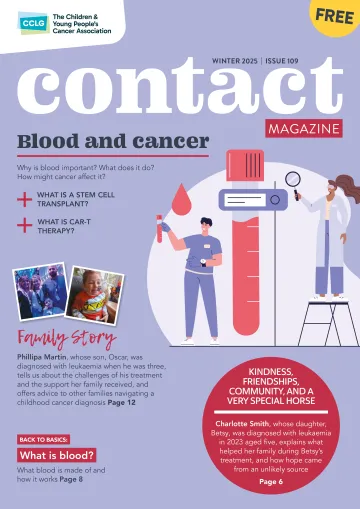Sorrelle is now 10 years old, but her start in life wasn’t normal. When 10 months old, she was staying overnight with us. She seemed a little quiet that evening, not as smiley or hungry as usual. I took Sorrelle back to Gemma, her mum and my daughter, and mentioned she seemed a little out of sorts. Gemma kept an eye on her, noticing some slight bruising on her cheek later that day.
On a mother’s instinct, Gemma took Sorrelle to hospital. At 11:30pm on 22 August 2015, my phone rang, and it changed my life. What I heard will haunt me for ever: “Dad, they think it’s leukaemia.” The next morning, we entered what would become home over the next three years: Manchester Royal Children’s Hospital oncology ward.
I soon realised I couldn’t protect my family from this, but I could get them through it. Watching my daughter’s anguish and my granddaughter’s pain was incredibly hard. I felt useless against this disease, and the feelings of frustration, anger and sadness were overwhelming. I wanted to scream, punch walls, and find something, or someone, to blame. However, I soon came to see that all of that was futile. Instead, I realised the part I had to play, which was every bit as important as the chemotherapy, the transfusions, the bone marrow transplants, the antibiotics, and all the other medicines or procedures.
The role I played in supporting my family
I determined my role to be that of a court jester, occupying the corridors of the ward, Sorrelle’s cot-side, anywhere she was, with the job of simply making her smile in any way I could. This, I found, helped my granddaughter cope, but also gave my daughter some respite. She was able to watch her daughter laugh and smile and the consequence was that, for moments, Gemma was able to smile, too.
I discovered that using cardboard urine bowls as hats can make a child howl with laughter to the point nurse’s attend. I watched endless kids’ movies, drew thousands of pictures, pulled endless funny faces and then, driving home, let my guard down a little emotionally, before putting a smile back on, determined to carry on. No matter how devastated I was, or how much my heart ached.
There were dark moments. But I trusted the science, even if I did find myself questioning, not to confront but to explore, her consultant, Professor Robert Wynn, the most eminent and saintly man I’ve ever met. There were so many people who helped during treatment, from our ‘ward family’, to all the doctors, nurses and other medical professionals. Everyone helped save a little girl and, in turn, save a family, helping us to re-prioritise our lives, and allowing us to look again at what’s important.
So, this was the train that hit us. What would my advice be to any grandparent finding themselves in the same situation? It sounds simple, and during this chaos it can feel like the most impossible thing, but just be you. That’s all Sorrelle needed, and that’s all Gemma needed, too. The skill is recognising you can’t change a thing. So, be yourself, be the grandparent and parent, do what you’ve always done. Recognise that unless you’re Professor Wynn, or others like him, you can’t cure cancer – and no one expects you to.
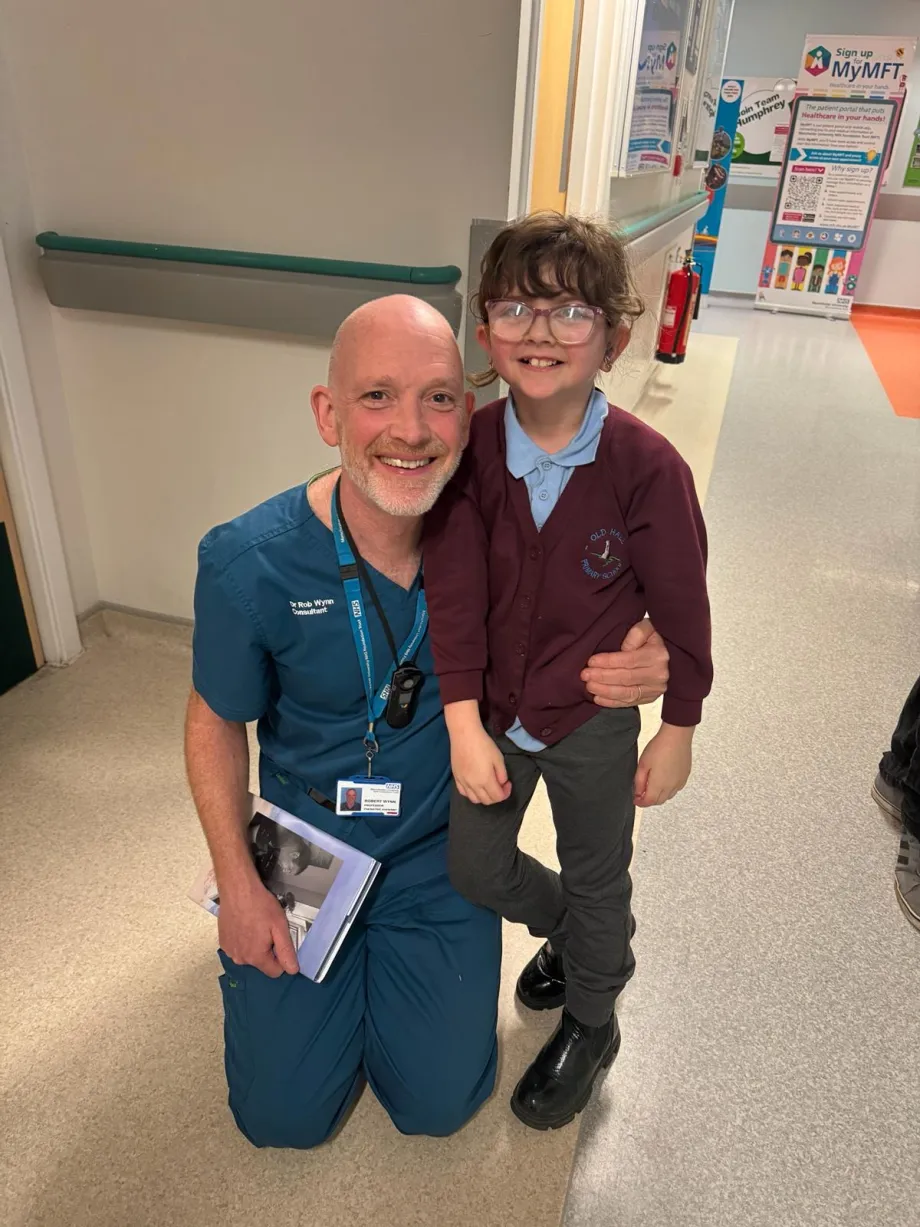
Sorrelle and her consultant, Prof Wynn
Your child simply needs a hug, the reassurance you’ve given them for years, a presence to be there and support them through it all. Your grandchild needs a hug, so don’t be afraid. I wasn’t going to break Sorrelle, so I got in there and hugged that beautiful little girl, my sidekick, my soon-to-be comedy partner. And here’s the strangest thing of all: something you never think will happen at the point of diagnosis, you really can find laughter on a children’s oncology ward. They’re still children, they still want to play, they still laugh, even when poorly and dealing with huge things.
My phone rang, and it changed my life. What I heard will haunt me for ever: 'Dad, they think it’s leukaemia'.
What life looks like now for Sorrelle
We all wear the scars of childhood cancer: Sorrelle the physical, and the rest of us the emotional and mental. Sorrelle didn’t just deal with leukaemia, she had bowel surgery, a stoma for six months, sepsis, septicaemia, adenovirus, two bone marrow transplants, and endless transfusions. Because of treatment, Sorrelle has conditions that will stay with her, including thyroid issues, chronic kidney disease, hearing loss, and calcium issues. But, the cancer’s gone, and she’s happy, funny, clever and engaging.
She’s the best of us, and my best friend. The bond we have just can’t be measured. We laugh together, understand each other, talk together, and ponder life together. She’s the most philosophical 10-year-old I know!
How I developed a book about our experiences
During Sorrelle’s treatment, I sent daily messages to our extended family across the globe. Although no great fan of Facebook, I used it to record all these messages. Gemma kept them all and some years later, I decided I wanted to write a book, made up of the 69,000 words of messages over that three-year period.
I wanted to give Sorrelle something to read when she’s older to help her understand and prepare her for any issues she may have in the future. I also wanted to help those families who find themselves in this impossible situation with little understanding of how their world will change, in an informative, but not alarming, way. If just one person reads a single sentence and asks a question they wouldn’t have thought about, which then saves a life, then it’ll all be worth it. Finally, I wanted to generate funds specifically for the ward that saved Sorrelle. The royalties from the book are helping to buy items for the ward that can help make a family’s journey a little more bearable.
And so, I began the process of writing the book, with its title, ‘Small Boat in a Big Ocean’, taken from a song that became my daughter’s anthem during Sorrelle’s treatment. Eighteen months later, in December 2024, the Lord Mayor of Manchester joined us to launch the book. Copies have been bought in the UK, USA, Poland, Canada, and Greece. We’ve received letters of thanks from Kensington Palace and auctioned special signed copies by sporting icons.
Sorrelle now happily autographs copies of the book and together we attend ‘meet the author’ events. We’re trying to do some good, and the most pleasing thing for me is that Sorrelle is developing compassion and kindness, things that our world could certainly do with more of.
It’s taken time, a sizable financial commitment and energy to get to this point, but I wouldn’t change a thing. I’m passionate about providing whatever support and awareness I can when it comes to childhood cancer. In addition, Sorrelle and I have, for the last six years, visited the ward every Christmas with gifts for the children. It’s our personal acknowledgement as to just how difficult that time of year can be for families who have to be on the ward during the period.
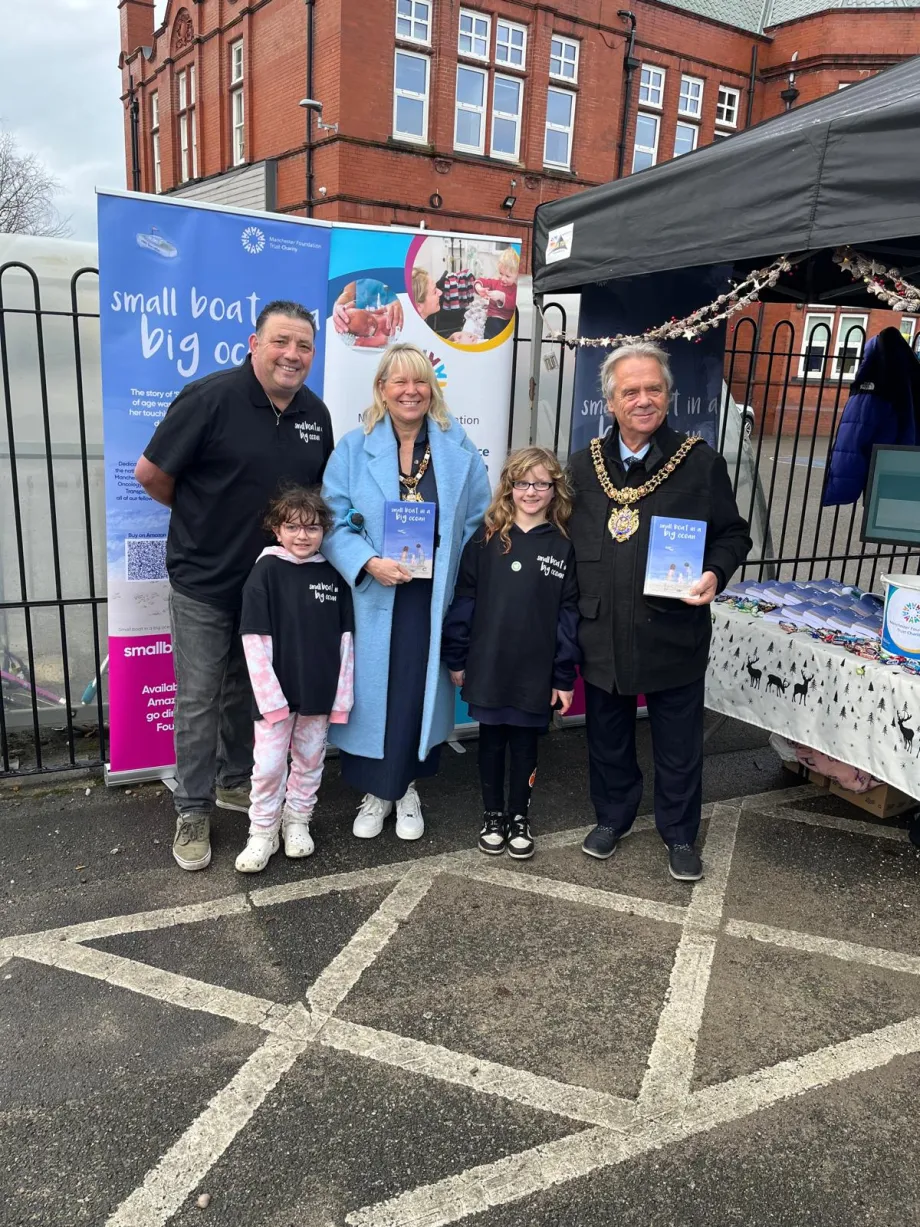
Book launch with the Lord Mayor of Manchester
A final message
I would like to finally add on a personal note that should you find you need to speak with someone, please seek them out and talk. The greatest lesson I learned in being there for my family was that I had to take care of myself, too, or else I’d be no help to others.
Small Boat in a Big Ocean is available to buy from Amazon and Waterstones.
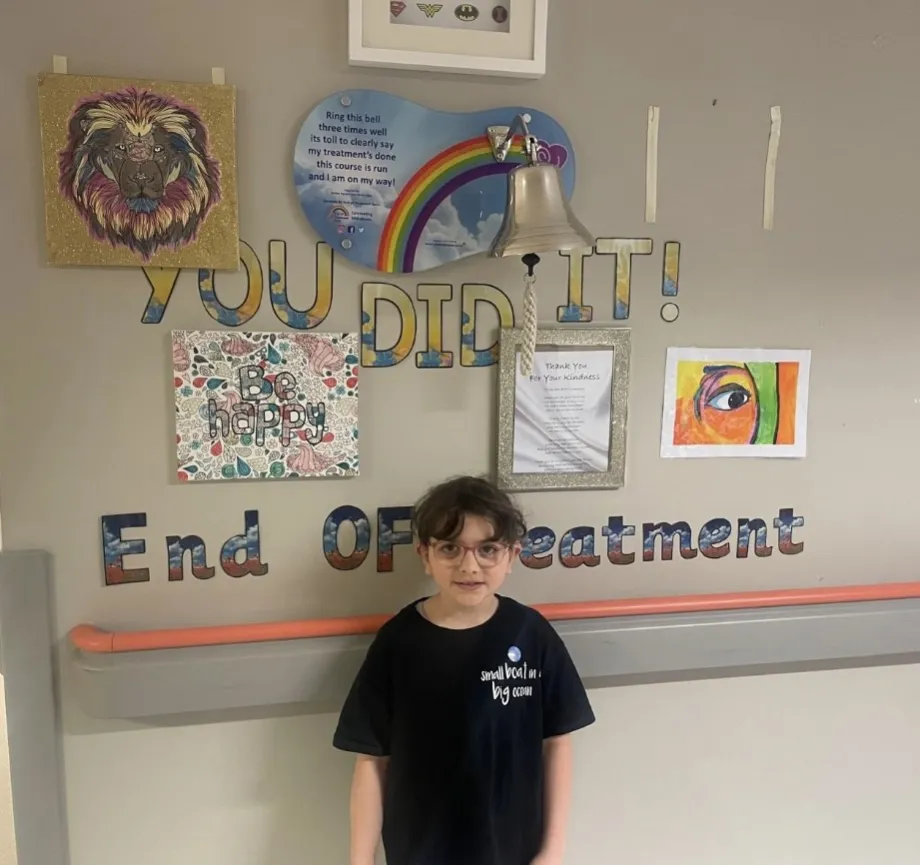
From Contact magazine issue 108 | Autumn 2025

